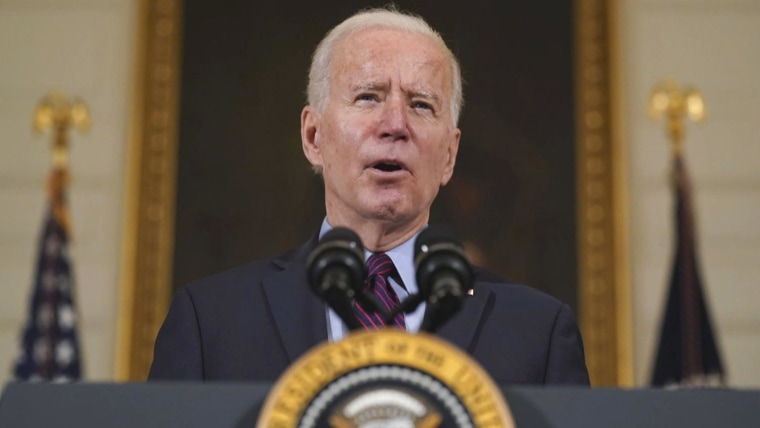[ad_1]
TEHRAN — President Joe Biden is pursuing the same policy against Iran as his predecessor, the country’s foreign minister said Sunday, two days before Tehran has threatened to cut back United Nations inspections of its nuclear facilities.
Mohammad Javad Zarif said former President Donald Trump’s policy of “maximum pressure” was still being applied to Iran in an interview with the English language news agency, Press TV.
“The United States is addicted to sanctions, but they should know that Iran will not yield to pressure,” Zarif said. “We are not seeking nuclear weapons.”
He also reiterated Tehran’s stance that Washington should take the first step to reviving the 2015 nuclear agreement with world powers, which offered sanctions relief to Iran in exchange for agreeing to curb its nuclear program.
Trump withdrew the U.S. from the deal, also known as the Joint Comprehensive Plan of Action, in May 2018 and reimposed harsh sanctions on Iran in a bid to isolate the country and dramatically slash its oil exports.
In response Iran began violating some of the deal’s nuclear limits and in December, lawmakers in the country approved a bill that would suspend part of U.N. inspections of its nuclear facilities, if signatories do not provide relief from sanctions by Feb. 23.
Iran will also halt the implementation of an additional protocol that allows U.N. inspectors to carry out more intrusive inspections to Iran’s nuclear facilities.
Zarif insisted this would not mean that Iran was abandoning the deal, but said the U.S. must still lift sanctions to rescue the pact. “All our steps are reversible,” he said.
The Biden administration announced last week that it was ready to hold talks with other world powers and Iran to discuss the deal, but both countries have been at odds over who should take the first step to revive the accord.
Zarif’s comparison of Biden’s approach to Trump’s tactics on Iran is a signal of dissatisfaction with the current pace and attitude of the Biden administration, said Aniseh Bassiri Tabrizi, a Middle East security research fellow at the Royal United Services Institute, a London think tank.
“There was optimism that the Biden administration would have acted in a quicker manner when it comes to Iran,” Tabrizi said. “Instead, one month in, it only stated its readiness to participate in talks last week — and for talks to translate into something concrete it will likely require some time.”
Download the NBC News app for breaking news and politics
Meanwhile, the head of the U.N. nuclear watchdog, Rafael Grossi, met with with Iran’s atomic chief on Sunday.
The International Atomic Energy Agency said last week the visit was aimed at finding “a mutually agreeable solution for the IAEA to continue essential verification activities in the country.”
Grossi is expected to brief the media on the results of the talks later on Sunday.
Ahead of the meeting, Iranian deputy foreign minister, Abbas Araqchi, told Iranian state TV Saturday that the purpose of Grossi’s visit was to “minimize possible damages” to collaborations between Tehran and IAEA.
He added that nuclear inspections will be reduced by 20 to 30 percent after Feb. 23, but will still continue.
Amin Khodadadi reported from Tehran, Yuliya Talmazan from London.
Reuters and the Associated Press contributed to this report.
[ad_2]
Source link

